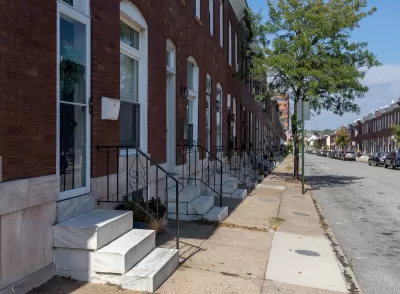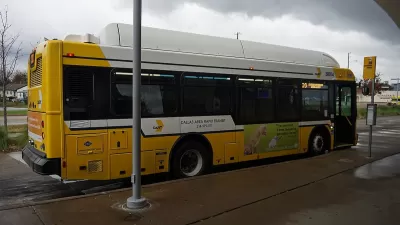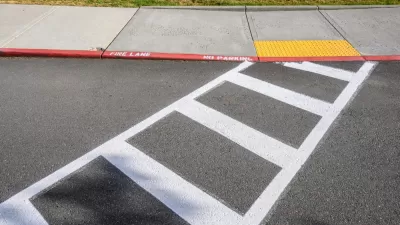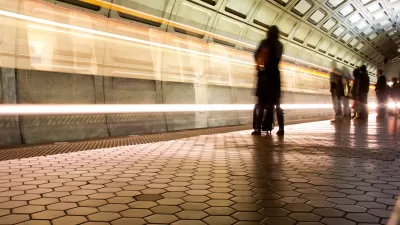The plan is the result of a lawsuit brought by residents who say the city has failed to maintain safe, accessible sidewalks and streets for people with disabilities.

Baltimore will spend at least $44 million on accessibility upgrades for city sidewalks following a lawsuit by three residents.
As Mark Reutter explains in Baltimore Brew, “Under the agreement, which will go before the BOE for approval on November 20, the city will allocate at least $8 million in state Highway User Revenues to install and upgrade curb ramps and walkways to ADA standards in fiscal 2025, followed by a minimum of $12 million annually between 2026 and 2028.” Bringing all of the city’s sidewalks and streets in compliance with ADA would cost $657 million in 2019 dollars, based on a study commissioned by the Department of Transportation.
A 2019 study found that just over 1 percent of Baltimore curb ramps were ADA-compliant, and the city had 3,000 miles of non-compliant sidewalks. The city has pledged to install 533 curb ramps by June 30, 2025 and fix or install more than 2,000 more in the next three years.
According to Reutter, “The Scott administration further promises to appoint an ADA coordinator to implement a sidewalk inspection program, establish a maintenance program to clear vegetation and clutter on sidewalks ‘on an annual basis’ and communicate with the public about the importance of accessibility on public rights of way.”
FULL STORY: Baltimore pledges to spend $44 million on ADA-compliant ramps and sidewalks

Study: Maui’s Plan to Convert Vacation Rentals to Long-Term Housing Could Cause Nearly $1 Billion Economic Loss
The plan would reduce visitor accommodation by 25,% resulting in 1,900 jobs lost.

North Texas Transit Leaders Tout Benefits of TOD for Growing Region
At a summit focused on transit-oriented development, policymakers discussed how North Texas’ expanded light rail system can serve as a tool for economic growth.

Why Should We Subsidize Public Transportation?
Many public transit agencies face financial stress due to rising costs, declining fare revenue, and declining subsidies. Transit advocates must provide a strong business case for increasing public transit funding.

How to Make US Trains Faster
Changes to boarding platforms and a switch to electric trains could improve U.S. passenger rail service without the added cost of high-speed rail.

Columbia’s Revitalized ‘Loop’ Is a Hub for Local Entrepreneurs
A focus on small businesses is helping a commercial corridor in Columbia, Missouri thrive.

Invasive Insect Threatens Minnesota’s Ash Forests
The Emerald Ash Borer is a rapidly spreading invasive pest threatening Minnesota’s ash trees, and homeowners are encouraged to plant diverse replacement species, avoid moving ash firewood, and monitor for signs of infestation.
Urban Design for Planners 1: Software Tools
This six-course series explores essential urban design concepts using open source software and equips planners with the tools they need to participate fully in the urban design process.
Planning for Universal Design
Learn the tools for implementing Universal Design in planning regulations.
City of Santa Clarita
Ascent Environmental
Institute for Housing and Urban Development Studies (IHS)
City of Grandview
Harvard GSD Executive Education
Toledo-Lucas County Plan Commissions
Salt Lake City
NYU Wagner Graduate School of Public Service





























